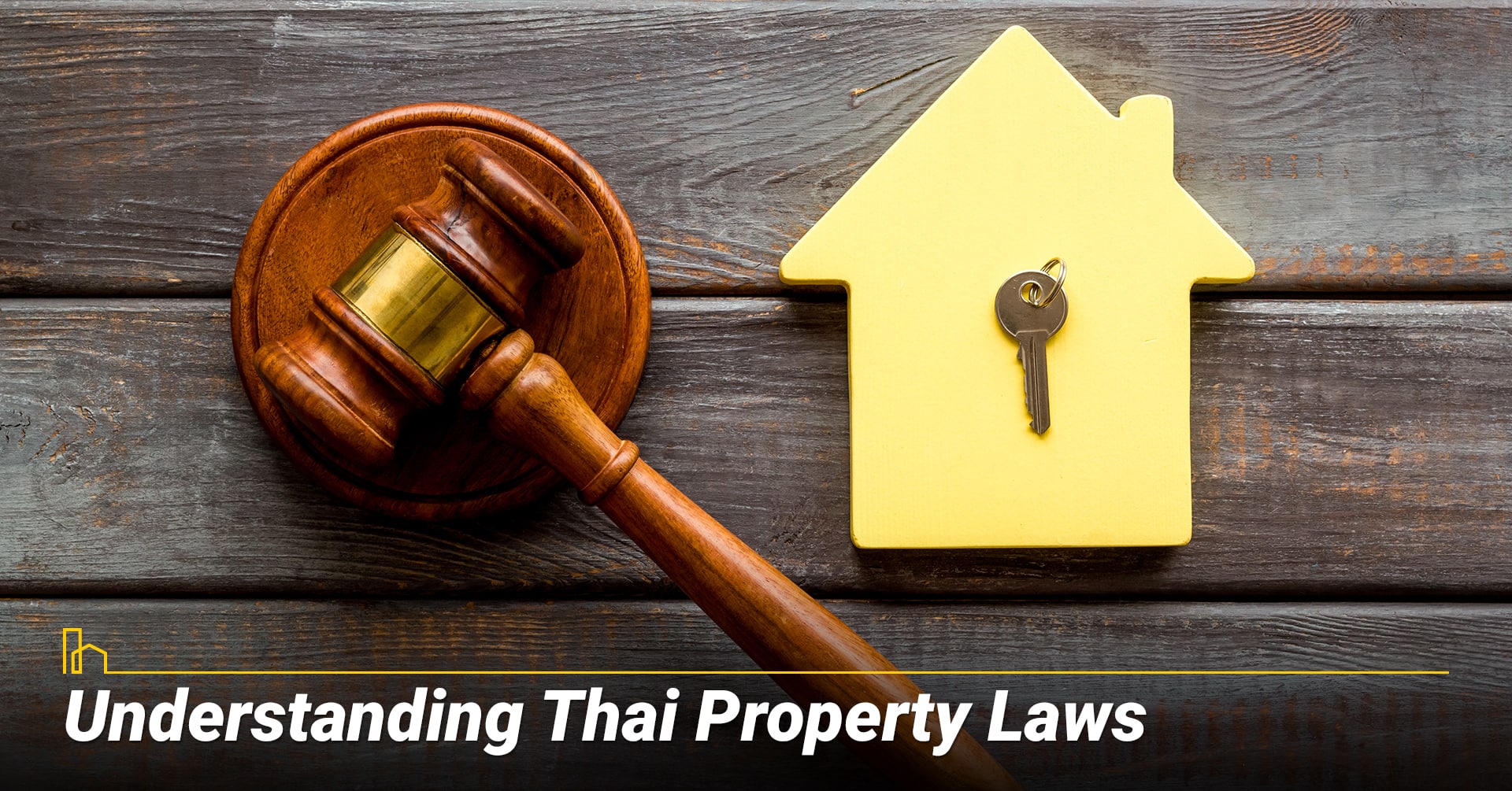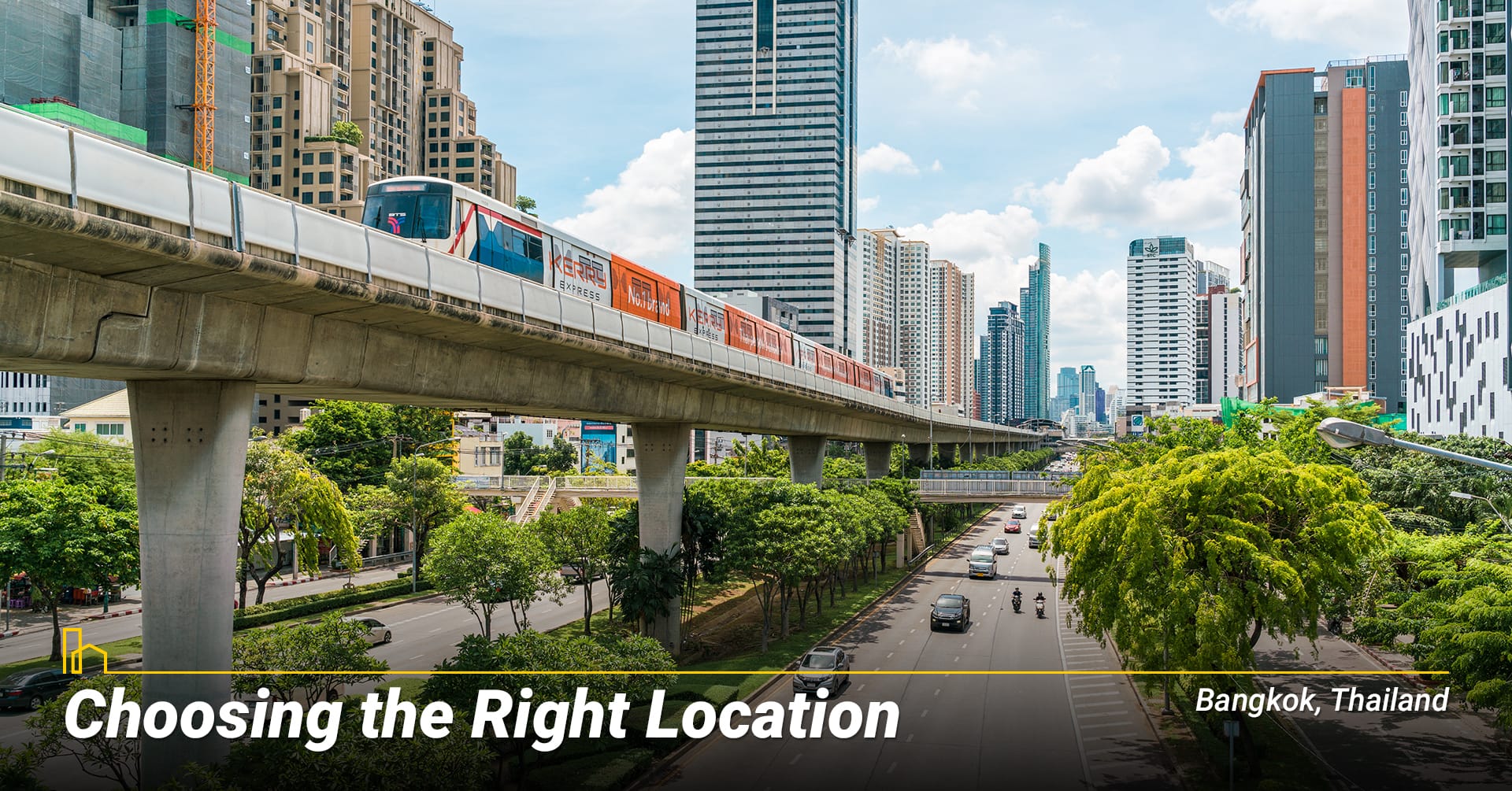5 Things You Should Know Before Buying a House in Thailand
- Author:by The HOMEiA Team
- Category: Buy House

With its lush landscapes, rich culture, and inviting climate, Thailand has become an increasingly popular destination for foreign property buyers. From bustling cityscapes in Bangkok to serene beachfronts in Phuket, the country offers diverse investment options. However, if you want to buy property in Thailand as a foreigner, be prepared to navigate a unique set of legal, financial, and cultural considerations.
In this guide, you’ll get an in-depth understanding of these aspects to help ensure a smooth process of buying a home in Thailand.
Table of Contents:
1. Understanding Thai Property Laws

When considering the purchase of a house in Thailand, you’ll want to have a firm understanding of the local property laws, especially as they pertain to foreign ownership. Thailand’s legal framework around property ownership can differ from what you may be accustomed to in your home country.
A. Foreign Ownership Restrictions
Firstly, Thai law generally prohibits foreigners from owning land outright. However, there are several legal pathways through which foreigners can control land or property. These include:
- Leasehold Agreements: Foreigners often opt for a leasehold, essentially a long-term rental agreement. Typically, these leases can last for 30 years, with an option to renew. It’s a popolar choice as it allows for relatively secure and long-term control over a property.
- Company Ownership: Another route is forming a Thai company to own the land. While this method can offer more control, it comes with its own set of complexities and legal obligations, including the requirement that Thai nationals must hold 51% of the company’s shares.
- Condominium Ownership: A more straightforward option for foreigners is buying a condominium, as Thai law allows foreigners to own up to 49% of the unit space in a condominium building outright.
B. Types of Property Titles
You should also understand the different types of property titles in Thailand:
- Chanote Title: This is the most secure type of land title, indicating clear ownership and the right to use it. It’s the ideal title for any property purchase.
- Nor Sor 3 Gor: This land has exacted boundaries, measured by the Land Department, and may be sold, leased, or mortgaged just as land with a Chanote title.
- Nor Sor 3: This land is also measured by the Land Department and has exact boundaries. It indicates that the land is awaiting a full title deed.
- Sor Kor 1: This is merely a claim to land ownership, not a title, and should generally be avoided by foreign buyers.
C. Legal Assistance
Given these complexities, if you are considering buying land, you should seek legal assistance from a reputable Thai lawyer specializing in property law. They can guide you through the intricacies of Thai property law, help you navigate the various types of land titles, and ensure that your interests are protected throughout the buying process.
Renting vs. Buying a Home: The Pros and Cons
Maybe you’ve been offered a job in a new location, or your current living situation is simply not working for you. You might be moving out on your own for the first time. There’re many situations that will lead you to look for a new home. One of the first choices you’ll have to make is whether to rent or buy a home. Buying and renting both have Pros and Cons. Here’s a guide to help in your decision-making process…
2. Financial Considerations

When buying a house in Thailand, it’s essential to consider the financial aspects, including property costs, taxes, fees, and mortgage options. Here’s a brief overview:
A. Property Costs:
- Location: Urban areas like Bangkok, Pattaya, and Phuket are pricier than rural locations.
- Property Type: Condos are usually more affordable than standalone houses or luxury villas.
- Amenity Proximity: Prices are higher for properties near beaches, tourist spots, or business districts.
B. Taxes and Fees:
- Transfer Fee: 2% of the appraised value, typically split between buyer and seller.
- Stamp Duty/SBT: Stamp Duty is about 0.5%, while Specific Business Tax is 3.3% (3% tax + 0.3% local tax) on the higher of either the sale price or appraised value, applicable if sold within five years.
- Withholding Tax: Varies by seller type – progressive rate for individuals, 1% of the higher of either the appraised value or sales price for companies.
- Negotiation: Distribution of these costs can be negotiated. Business tax and withholding tax are based on the registered selling price or appraised value, whichever is higher.
C. Mortgage Options:
- Thai Banks: Offer mortgages to foreigners under strict conditions.
- International Banks: These may have different terms from local banks.
- Developer Financing: Often available, possibly with higher interest rates.
D. Additional Considerations:
- Exchange Rates: Important due to their impact on investment costs.
- Insurance: Recommended, especially in disaster-prone areas.
- Maintenance Costs: These are important for budgeting, especially if renting out the property.
Things to Consider When Choosing Neighborhood for Your House
We all love finding our dream home—a house that fits perfectly with what we wanted—but is that enough? There’s another factor to consider as well like is this particular neighborhood a good fit? Here are 5 things that you should consider…
3. Choosing the Right Location

Thailand offers a diverse range of locales, each with its unique charm and characteristics. Let’s look at the factors you should consider when choosing a location for your Thai home.
A. Popular Regions for Property Buyers
- Bangkok: The bustling capital city known for its vibrant street life, cultural landmarks, and bustling markets. It is ideal for those seeking an urban lifestyle.
- Phuket: Famous for its stunning beaches and luxury resorts. Perfect for buyers looking for a holiday home or a place to retire by the sea.
- Chiang Mai: Known for its serene environment, rich history, and cooler climate. It’s a favored spot for those seeking a more laid-back and culturally rich experience.
- Pattaya: Offers a mix of beach life and city living. It’s popular among expats and retirees for its nightlife, beaches, and entertainment options.
B. Investment Potential
If the purchase is an investment:
- Rental Yield: Areas with high tourist footfall, like Phuket or Bangkok, can offer better rental yields.
- Appreciation Potential: Research historical property price trends in the area to gauge potential appreciation.
C. Climate and Environment
Thailand’s climate varies:
- Northern Thailand (e.g., Chiang Mai) has cooler winters.
- Southern Thailand (e.g., Phuket) is more tropical and humid.
D. Practical Considerations
- Flooding: Some areas, particularly in Bangkok, are prone to flooding. Check historical flood data.
- Infrastructure Development: Future infrastructure projects can impact property value and quality of life.
An Ultimate Guide to Moving for Home Buyers and Sellers
Buying and selling a home doesn’t make you an expert in moving. Buying and selling are much more different when you’re actually moving. Carefully go through the tips listed below and uses these as your ultimate guide whenever moving…
4. The Importance of Due Diligence

When buying a house in Thailand, conducting thorough due diligence is a step that you should pay attention to. This process involves verifying all aspects of the property and the transaction to ensure your investment is secure and free from future legal complications.
A. Conducting Property Checks
- Title Search: Confirm that the seller has a clear and legal title to the land. This involves checking the property’s history, ensuring no encumbrances or liens against it.
- Physical Inspection: Have the property inspected by a professional to assess its condition, verify boundaries, and ensure compliance with local building codes.
- Permits and Approvals: Ensure all required permits and approvals have been obtained for construction and that the property adheres to local zoning laws.
B. Hiring Professionals
- Local Lawyer: Engage a reputable Thai lawyer who specializes in real estate. They can help navigate the legal intricacies and ensure all documentation is in order.
- Real Estate Agent: A trustworthy and experienced agent can provide valuable insights into the local market and assist in finding properties that meet your criteria.
C. Understanding the Importance of a Good Title
We covered this earlier, but it’s an important topic — as the type of title deed can significantly impact your ownership rights:
- Chanote: The highest level of deed, offering the greatest security.
- Nor Sor 3 and Nor Sor 3 Gor: Lesser deeds that may have some limitations or risks.
D. Legal and Financial Implications
- Lease Agreements: If opting for a leasehold, understand the terms, renewal options, and what happens when the lease expires.
- Company Ownership: If purchasing through a company, be aware of your responsibilities and the legal requirements for company management in Thailand.
- Be prepared for differences in legal processes compared to your home country.
- Understand the role of local government offices, such as the Land Department, in property transactions.
F. Cultural Sensitivities
- Be aware of local customs or practices that might influence property dealings.
- Engage with the local community to gain their perspective and understanding of the area.
15 Essential Steps for Moving to a New City
If you’re moving to a new city, though, the process is even more complicated. Without the ability to make a quick trip here and there, you’ll need a detailed plan to keep everything running smoothly. This guide to relocation will help you make a plan and check all the boxes so your move will be as painless as possible…
5. Cultural Considerations

Buying a house in Thailand is a financial investment and a cultural engagement. Understanding and respecting Thai culture is crucial for a harmonious experience as a property owner. This section discusses the cultural aspects that foreign buyers should be aware of.
A. Adjusting to the Local Community and Culture
- Understanding Thai Culture: Thai culture is known for its emphasis on respect, politeness, and community. Familiarizing yourself with essential Thai customs and etiquette can go a long way in building good relationships with your neighbors and local community.
- Language Barrier: While English is widely spoken in tourist areas and major cities, in rural areas, this might not be the case. Learning basic Thai can be incredibly beneficial for daily interactions and showing respect for the local culture.
- Community Engagement: Participating in local events and activities can help you integrate into the community. It’s a chance to understand the local way of life and make meaningful connections.
B. Respecting Local Customs and Traditions
- Religious Practices: Buddhism is integral to Thai culture. Showing respect to Buddhist traditions, temples, and monks is important.
- Land Use and Development: Be mindful of how your property development might affect the local environment and community. This includes respecting land that may have cultural or religious significance.
- Local Laws and Norms: Adhere to local laws and regulations, which may include restrictions on noise levels, business operations, or property modifications.
C. Tips for Integrating into the Local Community
- Be Open and Friendly: Approach your neighbors and local community members with openness and friendliness. Building a network of local friends and acquaintances can be invaluable.
- Contribute Positively: Look for ways to contribute positively to the community by supporting local businesses or participating in community projects.
- Cultural Sensitivity: Always show sensitivity towards cultural differences. What might be considered normal in your home country could be viewed differently in Thailand.
- Seek Local Advice: Don’t hesitate to seek advice from locals or expats who have lived there for a long time. They can offer practical advice and insights into navigating life in Thailand.
Relocating? Make Plans for These 8 Items
Some items are problematic because movers can’t or won’t transport them. Others require special preparation. And there are some things you may not be able to move at all. Here we’ll take a look at 8 categories of belongings that need a little extra planning before you move to another part of the country…
Conclusion
Buying a house in Thailand offers a unique and exciting opportunity but comes with challenges and considerations. It’s a journey that requires diligence, respect for local laws and customs, and a willingness to adapt to a new culture. The rewards, however, can be immense – from enjoying the beautiful landscapes and rich culture to benefiting from a sound investment.






















